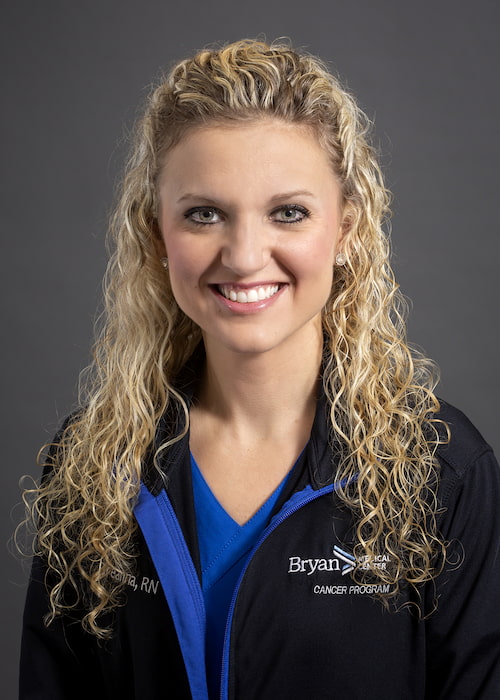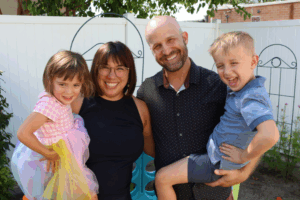When Should You Start Screening for Colon Cancer? 50? 45? Never?!
If you answered 45 – good for you! Most people don’t realize that the recommended age by the American Cancer Society (ACS) to begin these screenings has been lowered from 50 to 45—and sooner if you have an increased risk or family history.
Here are some other questions you may have:
- Why was the age to start screening changed from 50 to 45? Studies show colorectal cancer among people younger than 50 is on the rise. The ACS determined that screening starting at age 45 could help save more lives.
- Why is screening important? The earlier cancer is found, the more treatable it is. A significant number of people with colon cancer, especially early in their disease, don’t have symptoms. One screening method, a colonoscopy, not only detects cancer, but can prevent it by removing precancerous growths before they become cancer.
- How could this benefit me? If found early, colon cancer can be easier to treat. But colon cancer can also be prevented through screening. That means you don’t have to undergo treatment to beat it; you can prevent it from happening and go on living your life.
If you answered never – you’re probably in good company because many people don’t want to think about this or take the time to do it. But I refer you to the above facts and hope you’ll reconsider your answer.
As an oncology (cancer) nurse navigator and mother of two, I understand that life gets busy and our own wellness is easy to put off for a later time—especially during a pandemic! With our lives being different this past year whether it be working from home, children remotely learning at home, dealing with the stress of not seeing family and friends, and of course, our ongoing daily to-do lists, we have all experienced many changes.
The one thing that remains the same is the need to keep ourselves and our families healthy and safe. This can start with regular checkups with our doctors, which should include screening for colorectal cancer if you are 45 or older, and sooner if you have a family history of colon cancer.
Answers to Common Colon Cancer/Colonoscopy Questions & Misperceptions
The following information is provided by David Newton, MD, a gastroenterologist with Gastroenterology Specialties, through a recent podcast. We encourage you to listen to the entire 10-minute podcast to get more detailed information.
How can you screen for colon cancer?
There are two ways to do this:
- A sensitive test that looks for signs of cancer in a person’s stool (a stool-based test)
- An exam that looks at the colon and rectum (a visual exam)
What is the benefit of a colonoscopy (a type of visual exam)?
A colonoscopy is the single most important tool we have for the detection of polyps or tumors. During a colonoscopy, a gastroenterologist screens your colon looking for any growths or polyps. If a polyp is found early, it can be removed before it has a chance to become cancerous.
What about the home-based stool kits; how do they work and are they effective at detecting cancer?
These tests can detect if cancer is present. FIT DNA testing is widely available now, and studies show they will catch 93% of cancers, which is a good number. But when looking at it closer, the test missed one in 13 colon cancers, and about 60% of larger precancerous polyps in the right colon, which we know through studies contributes to 20-30% of overall cancers diagnosed in the U.S.
One of the big differences between these tests and a colonoscopy is that with a colonoscopy, you can not only detect cancer but prevent it by removing precancerous growths.
Many people consider a home test (FIT or FIT DNA test) to avoid a colonoscopy. However, if the home test is positive, the next step is a colonoscopy.
Does insurance cover colon cancer screening?
Colon cancer screening is covered at 100% in Affordable Care Act compliant health plans.
- If you choose a colonoscopy for screening, it is covered at 100%.
- If you first choose a FIT or FIT DNA test, that test is covered under your screening benefit. But, if the home test is positive, you will then need a colonoscopy and that colonoscopy would be considered diagnostic and would not be covered 100% by the insurance carrier. This would be subject to both co-pay and deductibles toward the maximum out-of-pocket amount.
Note: At this time insurers are not required to (and some might not) cover the cost of colorectal cancer screening before age 50.
What about the ‘prep’ you have to do for a colonoscopy?
Times have changed! You no longer have to drink a gallon of salty water. There are many small volume prep products on the market. The one we use is only about 25 ounces of a solution that you mix with the clear liquid of your choice. In fact, many of our patients are amazed at how easy it is. So, don’t let misconceptions about what the prep was like in the past affect your future. The preps now are much easier and shouldn’t discourage you from getting a colonoscopy.
You Have the Power to Prevent Colon Cancer
Screening is a way to help find colorectal cancer early or help prevent it altogether. Being an oncology nurse navigator, I have walked alongside many patients during their journeys with colorectal cancer and feel passionate about this topic.
I hope you will go home, talk with your family and add regular screenings to your 2021 calendar—so we can stay strong and healthy for ourselves and families.
To learn more, visit the American Cancer Society.
See a Colonoscopy
Bryan patient Ruth Van Gerpen and her doctor, Mark Griffin, MD, gastroenterologist, share details about this important screening for colon and colorectal cancer. Hear about the prep, see the actual procedure and how potential polyps (growths) can be discovered and removed.
Colon Cancer: Preventable. Treatable. Beatable.
10-minute podcast with David Newton, MD, gastroenterologist with Gastroenterology Specialties
Get the facts about colon cancer screenings including differences between home tests and colonoscopies, new details on how cases in younger people are increasing, insurance coverage and key points you need to know, and more.

Breanna Nedved, RN
Breanna Nedved, RN, is an oncology nurse navigator at Bryan Medical Center. This is a specially trained nurse who helps patients and their families through each step of cancer treatment.









